Responsive Design Vs Mobile Apps
Currently, almost every business except for really small and local ones has a website or app. This is already a must-have. People not only use a website (or app) to learn about a company and connect to its services – they also just expect it to be there.
However, neither mobile apps nor mobile websites are a silver bullet. You can always choose both, but if you have time and/or budget limits, you'll need to start with one or the other. There's also another option: cross platform solutions for mobile app development.
In this article, we'll talk about what options you have for your digital presence and what criteria to consider when choosing the right platform for you. Of course, we'll also do a responsive website vs mobile app comparison.
What do people use more?
The use of mobile devices is growing extremely fast, so every business should be present on mobile devices in one way or another. Either mobile apps or responsive web are great solutions.
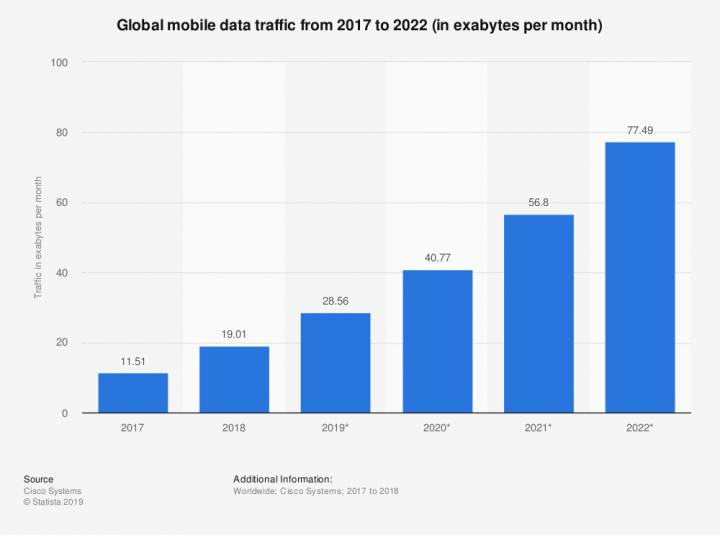
According to StatCounter, mobile currently accounts for 51% of all internet traffic worldwide.
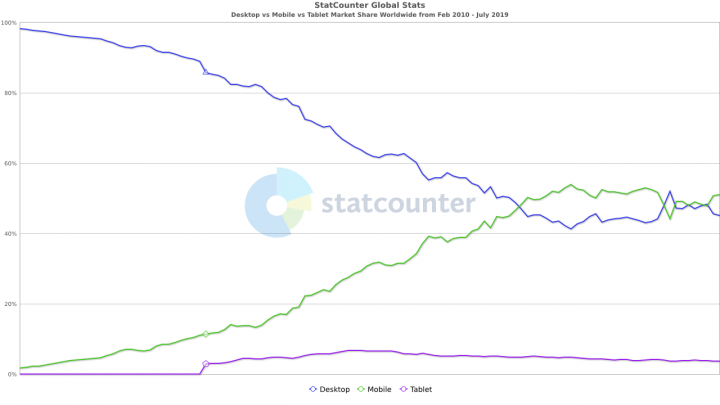
Almost 90% of this traffic belongs to mobile apps:
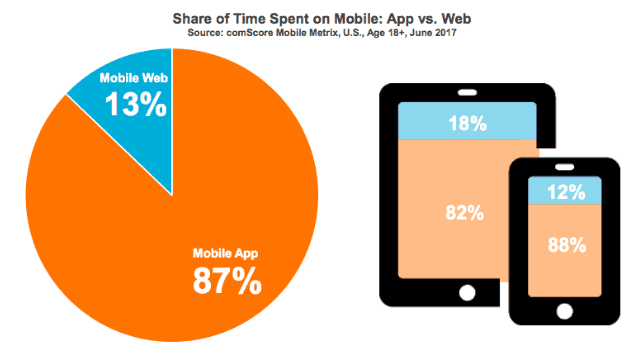
Though this is a clear indicator that a business should be present on mobile devices, it doesn't mean that users will spend that much time in your app. Most of this 90% of mobile traffic belongs to famous apps like Facebook, Instagram, and banking applications.
Though traffic on mobile is huge, it doesn't belong to apps only. The decision to create a mobile website or app depends on your domain, business processes, goals, and other factors like budget and deadline.
Mobile and web development services
Are you planning to expand your business online? We will translate your ideas into intelligent and powerful solution on any platform.
Pros and cons of mobile apps
A mobile app is software that's created specifically for smartphones and tablets. Apps work only if installed and require updates for any changes that you make.
Usually, mobile apps are developed for particular platforms, with iOS and Android being the most popular. However, there are also hybrid and cross-platform apps that work on both platforms and use HTML, CSS and JavaScript to operate. The ability to build just one app for both platforms is one of the biggest advantages of cross platform mobile app development.
Right now, we'll be talking about native apps. We'll leave cross-platform apps for another section of this article, as they're a bit different.
Mobile applications are created to work great on mobile devices. They can easily use all the capabilities of a modern smartphone: camera, microphone, NFC, Face ID, GPS.
This means you can implement almost anything in a mobile app and it will work neatly, without lagging. The mobile app user experience is smooth and convenient, and this influences conversions, satisfaction rates and your brand reputation.
However, as the number of mobile apps has reached over four million on the App Store and Google Play Store combined, it's a challenge to get people to download new apps.

Because of this, creating an app doesn't mean instant traffic: acquiring users is more challenging for a mobile app than for websites. On the other hand, engagement is usually higher with a mobile app because of the value an app can bring: access from anywhere, geolocation features, and other features like QR code scanners, augmented reality, and push notifications.
Also, it takes more time and money to develop a mobile application compared with a website. If you develop native apps, you'll need almost twice the budget for a single native app to create two apps, one for Android and one for iOS.
Let's sum up the pros and cons of mobile apps for businesses.
Pros
- Flexible and functional – you can implement literally anything your business needs
- Access to mobile-specific features like push notifications, geolocation, cameras, etc.
- Ability to add engaging elements like gamification
- Users spend more time in and engage more with apps
- Smooth UX
- More secure than a website
- Great performance and speed
Cons
- Acquiring users is challenging
- High cost of development
- Lots of time needed to build a high-quality app
Responsive and adaptive websites
Though similar, responsive and adaptive websites aren't the same. Adaptive websites have predefined look for each platform. Responsive websites are built using fluid grids that work great on any device, be it a desktop computer or phone. A responsive website doesn't have any preset sizes; it just responds to the screen size automatically.
With adaptive websites, instead of having one design that changes its size, you'll need three different designs: for desktop, mobile and tablet formats. As the website loads, it will detect the device and choose the right preset.

Currently, responsive design is the best practice for website development. Google encourages developers and businesses to build responsive websites and ranks them higher in search.
So what's so great about having a responsive website? Can a website win if comparing mobile apps vs responsive web design?
First, it's flexibility. Responsive websites can be used on any device, be it a tablet, smartphone, or desktop. Any operating system and any browser should be able to render them.
Not only is a website fast to develop, it's also fast to change and easy to perform A/B testing on
Because the only thing a user needs to do is click a link to enter your website, it's much easier to acquire new users with a website than with a mobile app. You can add lead magnets to your website and get the emails of potential customers to later promote your services or products to via email marketing.
One of the other significant pros of responsive web design is the cost and time of development: it's much faster to develop and launch a website, which is great if you want to test your idea. Not only is a website fast to develop, it's also fast to change and easy to perform A/B testing on. After you make changes to your website, users will see them the next time they load it.
Compare this to mobile apps, which you need to update for every change, even the slightest.
The main drawback of a mobile website is its functionality. It will never be as convenient to use as a mobile app because there's no connection to device hardware. Also, mobile websites are often slower, and their layout is less convenient than that of a mobile app.
Let's sum up the pros and cons of a responsive mobile website.
Pros
- Requires less time to develop
- Cheaper to develop
- Works on any platform and on any device
Cons
- Slower than a mobile app
- Less convenient to use on a mobile device
- Limited functionality with no access to a device's hardware
Is there something in between?
Sure, there are other options that try to take the best from both worlds, but they have their shortcomings as well. Let's talk about the compromise that some other technologies can provide.
Progressive Web Apps
What is a progressive web app? A progressive web application, or PWA, has been around for a few years, but this type of apps became huge only in 2018. These apps (websites, actually) use a set of technologies that allow them to get a native feel while still working in a browser.
PWAs support offline mode (though limited) and web push notifications, making them closer to native apps and providing some pros of mobile apps. But like websites, they don't need to be installed, and this is why some businesses turn to developing progressive web apps.

Among their downsides is still a lack of functionality: PWAs can't access most hardware that a native app can. In addition, cross-login isn't possible: a user can't log into a PWA using their Facebook or Instagram account.
Also, PWAs are limited in terms of special user content, such as loyalty programs. Though progressive web app development is quite cheap, it has its disadvantages.
Cross-platform mobile apps
When comparing responsive websites to mobile apps, we're talking mostly about native applications. But what about cross-platform technologies?
Cross-platform apps, like responsive websites, work on both Android and iOS. A little adaptation for each platform is all you need to run a cross-platform app.
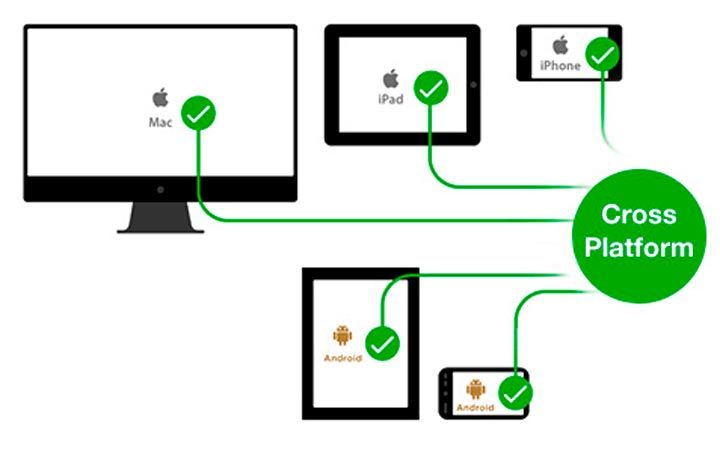
Cross-platform applications can access almost all of the functionality native apps can, so it won't be a problem to add complex functionality to your app. And unlike PWAs, cross-platform apps are actually apps. This means they're present on the App Store and Google Play Store.
While keeping all the benefits of native mobile apps, cross-platform apps are cheaper and faster to develop. Many businesses choose a cross-platform app as a compromise, or as an option for an MVP.
The quality and performance of a particular cross-platform app depends on the technology used. These are the most popular frameworks:
- Flutter
- React Native
- Xamarin
On our opinion, Flutter is the best cross platform mobile app development technology out there for now, at least for MVPs and small to medium-sized apps. Let's talk more about it.
More on Flutter
Flutter is a cross-platform framework from Google, that works on a programming language called Dart. Google plans to make this a native language to its new operating system, that will eventually replace Android. Though Flutter is a cross-platform framework you can use for building apps for both Android and iOS, it has a native feel and is very different from React Native or Xamarin.
Here's a short list of Flutter's most prominent features and benefits:
1. Great performance – Flutter is extremely fast and responsive, providing a close-to-native experience to users.
2. Easy-to-learn technology – you can easily teach your team to use Flutter, especially if they have experience with native languages. Because Flutter is so easy to pick up, you won't have issues with developers as your project goes.
3. Ready UI widgets – they skyrocket the development speed, allowing you to build your MVP fast, and the fact that Flutter is a cross-platform technology, makes it even faster.
4. Localization – if you have more than one language in your product, Flutter offers great localization feature that supports over 20 languages. This will help you adapt your app for a worldwide audience without any serious efforts.
This isn't a complete list of everything that's great about Flutter, you can learn more about it here.
Most of our clients now choose Flutter as their main technology for development, and we can confidently say that in the modern IT landscape Flutter provides the best way to build cross platform mobile apps that are relatively simple and functional.
How to choose?
Now that you know more about the difference between mobile app and responsive website, or difference between website and web application, let's apply this knowledge to your particular situation. Answering the following questions will help you determine the best option for your business.
Mobile and web development services
Are you planning to expand your business online? We will translate your ideas into intelligent and powerful solution on any platform.
Both responsive website and mobile app technologies have their upsides and downsides, so there's no one-size-fits-all answer here. The choice depends solely on your business needs.
Do you plan to launch a full-fledged product?
This is the most important question you need to answer to choose between a website and an app.
Full-fledged products are services that can't exist outside of a mobile app: for example, Uber or any other vehicle sharing service. Instagram would also make little sense as a website.
If your startup idea is based on mobile technology, you probably already know it. But what should you do if you have a food delivery business? A website can work as well as a mobile app: it just depends on your target audience. But if you want to implement a full-fledged service that will not only facilitate your communication with customers but also provide them a convenient tool for anywhere and anytime, you'll need a mobile app.
Also, if you plan to create a product for internal use by your employees and managers (for example, a warehouse management software), think of the use cases. Where will your workers most likely use this product: behind their desks or somewhere else? How often will they need to access it? Does location play a role?
Do you plan to update your product often?
Updates are inevitable for any product, but updating a mobile app will cost you more. It's much easier and faster to update a website, and if you feel the need to experiment to find your niche or get a real response from the market, a mobile website is a good idea.
With a mobile app, you'll need to find a healthy balance with updates: they should be regular but not too frequent; otherwise, users will get annoyed. This can lead to users either not updating your app at all or uninstalling it.
Do you already have a big customer base?
It's much easier to encourage already loyal customers to install and use your app
If you're a startup and you just plan to launch your business that's not based specifically on mobile technology, it's often better to start with a responsive website. It's easier to attract new users to a website, so you'll be able to create a customer base with the help of search optimization on Google.
If you already have a successful online or offline business and you'd like to open yourself to a new market of mobile users, you should go for an app. It will be much easier to encourage already loyal customers to install and use it, and you can start getting profit from your app right away.
Will you need offline mode?
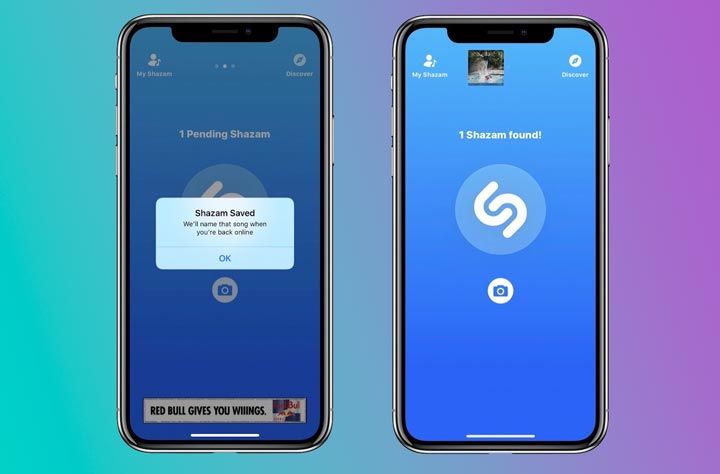
Offline mode is a must for lots of modern software. If you need it, think about creating a mobile application. Another option is a progressive web application, but note that it will still have limited offline capabilities.
Wrapping up
There are lots of factors to consider when you choose between a mobile app and a responsive website. There are also other options like cross-platform applications and progressive web apps that can cost less and still meet your business goals.
But as soon as you need to implement particularly sophisticated functionality, an app is the best choice.
An app is your choice if:
- Your product is mobile-based and needs mobile-specific functionality
- Your idea requires offline mode
- You already have a business and you just want to open a new mobile market or cater to a younger audience
- You don't plan massive experiments with your product
You should consider developing a responsive website if:
- Your budget and/or deadline is tight
- You're just starting a business and want to build an MVP
- Your main goal is to acquire leads or clients
- Your product doesn't need mobile-specific features
These are the main criteria for making your choice; however, everything depends on your specific domain, location, and target audience. For example, in some countries people rarely use desktops. Millennials and younger generations also prefer using apps, spending most of their time on the internet in applications.
If you need more information on types of software that will bring your business the most value for the least money, don't hesitate to contact us. We provide full-cycle web and mobile development, both native and cross-platform, so we can offer a solution that will work for you.
Responsive Design Vs Mobile Apps
Source: https://www.mobindustry.net/blog/mobile-app-responsive-website-or-something-in-between-what-to-choose-for-your-business-in-2019/
Posted by: franklinsart1949.blogspot.com

0 Response to "Responsive Design Vs Mobile Apps"
Post a Comment